Traditional Chinese art looked at the Earth from a Confucian mountain top;
JOHN BERGERThe publicity image steals her love of herself as she is, and offers it back to her for the price of the product.
More John Berger Quotes
-







-







A cigarette is a breathing space. It makes a parenthesis.
JOHN BERGER -





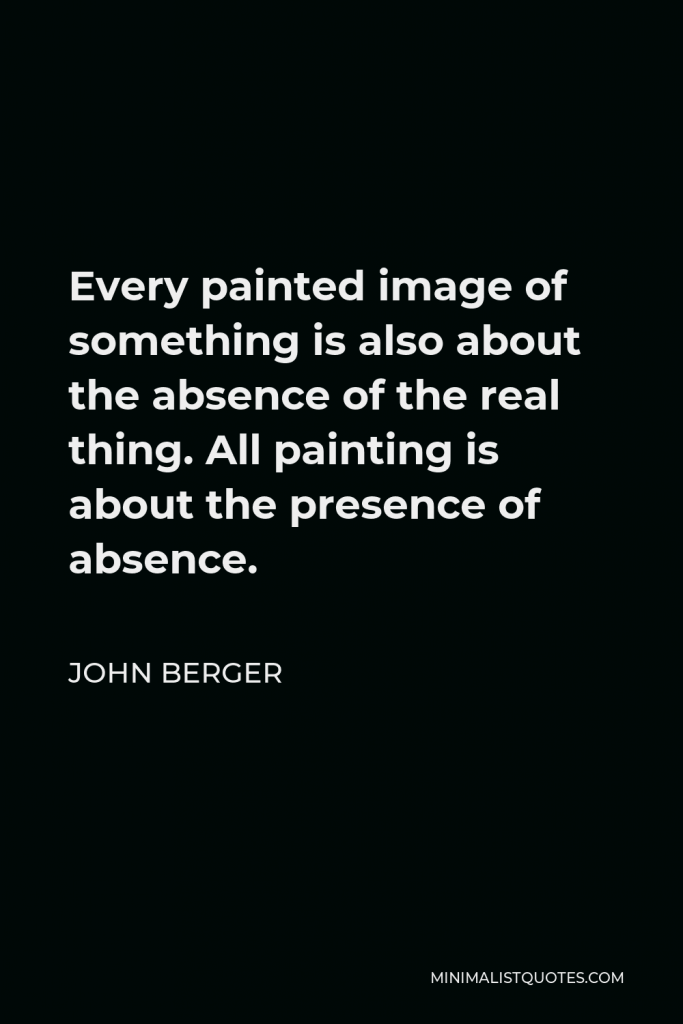

Every painted image of something is also about the absence of the real thing. All painting is about the presence of absence.
JOHN BERGER -







Men look at women. Women watch themselves being looked at.
JOHN BERGER -







Tracing an imaginary line between a cluster of stars gave them an image and an identity.
JOHN BERGER -







I can’t tell you what art does and how it does it, but I know that often art has judged the judges, pleaded revenge to the innocent and shown to the future what the past suffered, so that it has never been forgotten.
JOHN BERGER -







A peasant becomes fond of his pig and is glad to salt away its pork.
JOHN BERGER -







Matisse did neither. He clashed his colours together like cymbals and the effect was like a lullaby.
JOHN BERGER -





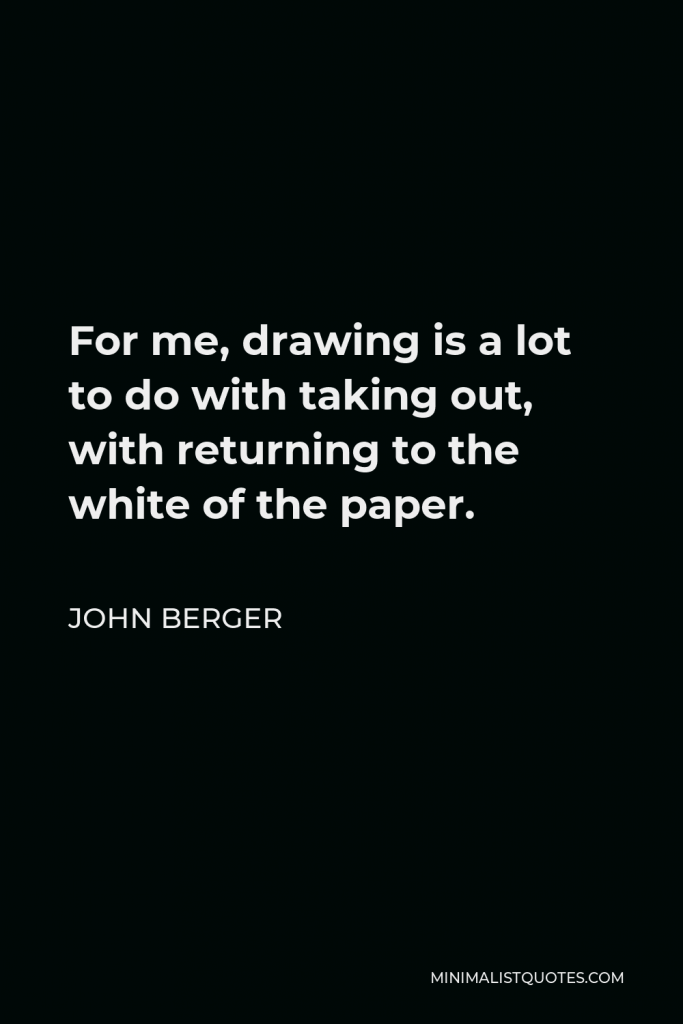

For me, drawing is a lot to do with taking out, with returning to the white of the paper.
JOHN BERGER -





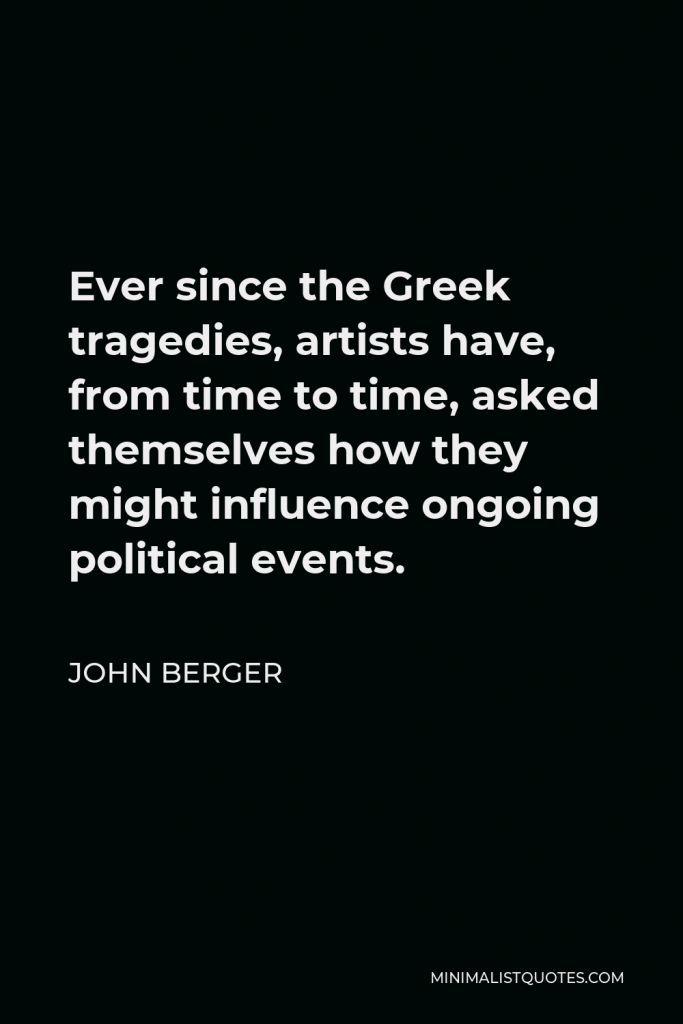

Ever since the Greek tragedies, artists have, from time to time, asked themselves how they might influence ongoing political events.
JOHN BERGER -







Seeing comes before words. The child looks and recognizes before it can speak.
JOHN BERGER -





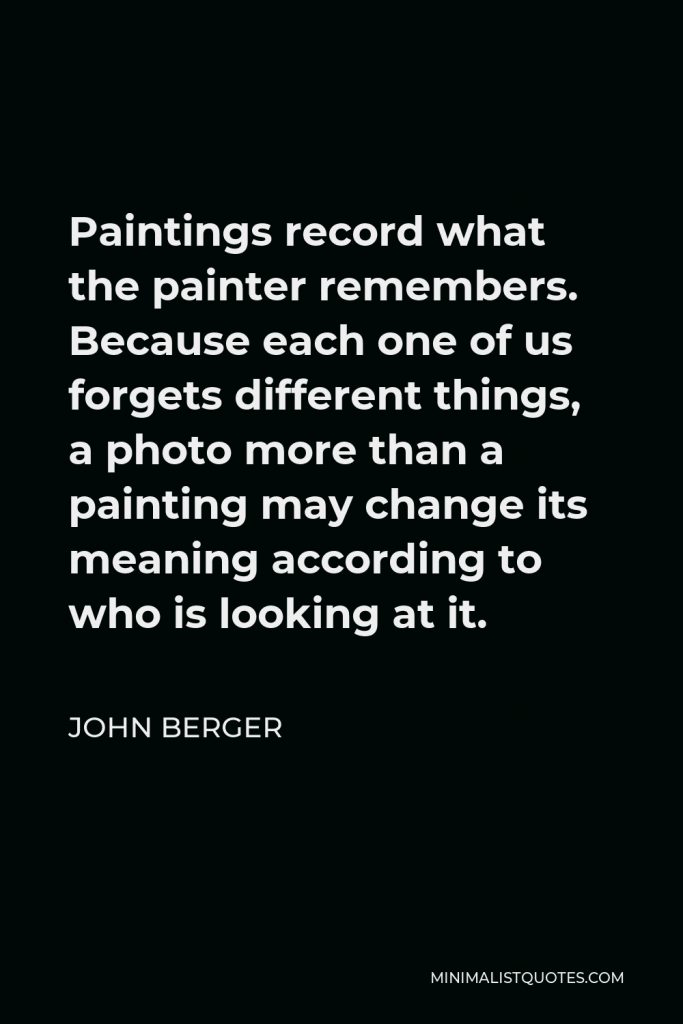

Paintings record what the painter remembers. Because each one of us forgets different things, a photo more than a painting may change its meaning according to who is looking at it.
JOHN BERGER -







When we suffer anguish we return to early childhood because that is the period in which we first learnt to suffer the experience of total loss.
JOHN BERGER -





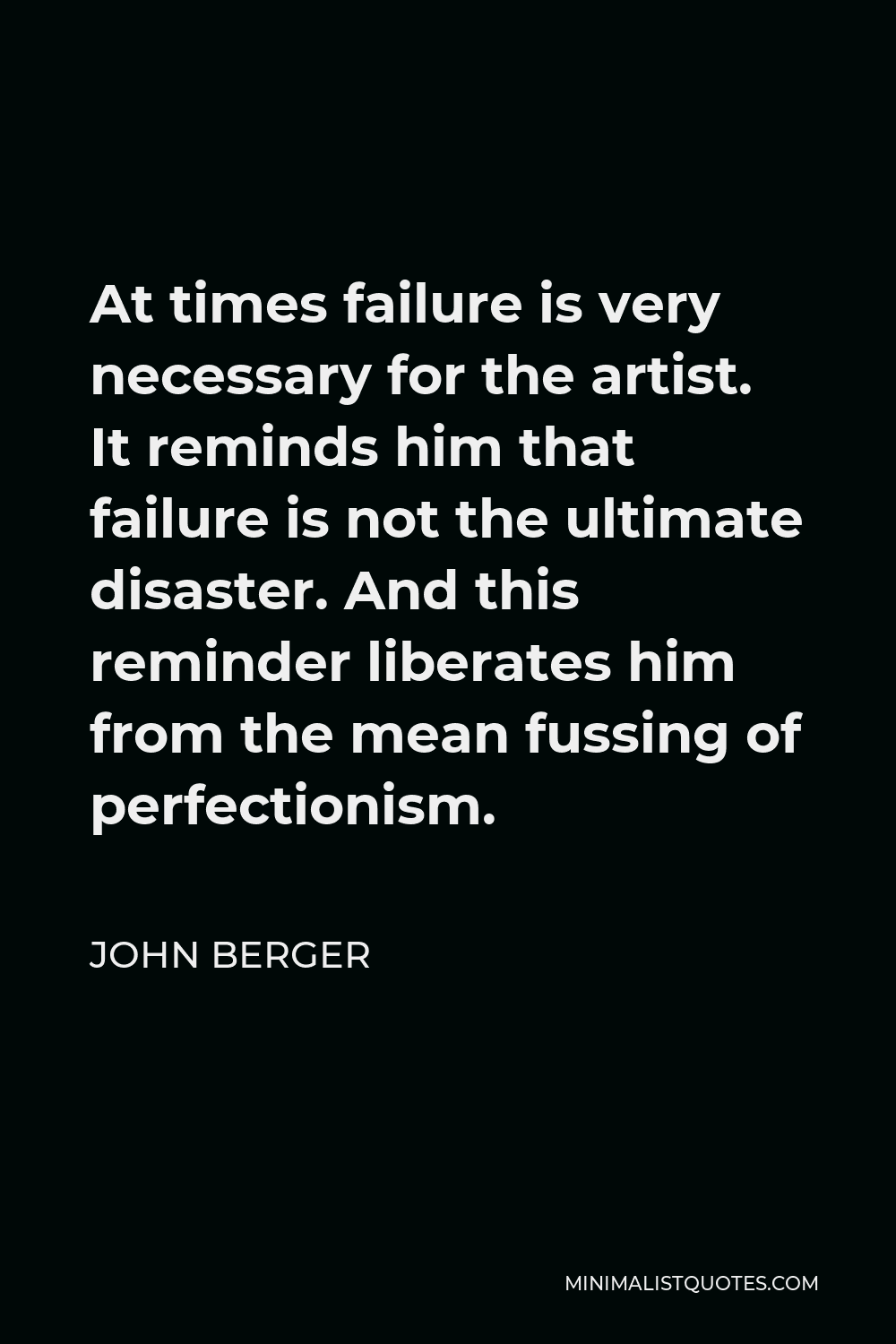
At times failure is very necessary for the artist. It reminds him that failure is not the ultimate disaster. And this reminder liberates him from the mean fussing of perfectionism.
JOHN BERGER -







It is not usually possible in a poem or a story to make the relationship between particular and universal fully explicit. Those who try to do so end up writing parables.
JOHN BERGER -







A drawing is essentially a private work, related only to the artist’s own needs; a ‘finished’ statue or canvas is essentially a public, presented work – related far more directly to the demands of communication.
JOHN BERGER







